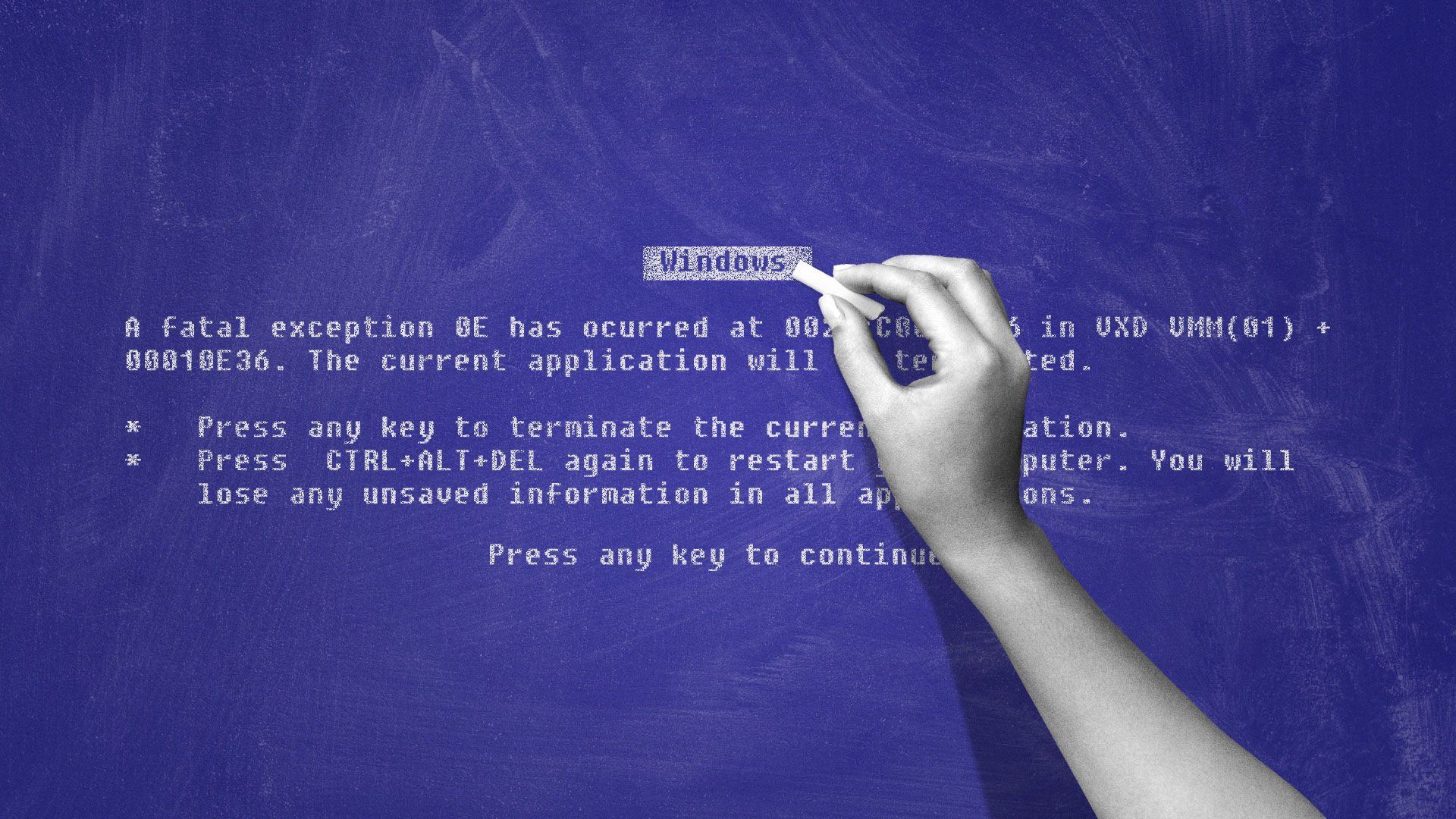What we overlooked in the switch to remote learning
Add Axios as your preferred source to
see more of our stories on Google.

Illustration: Eniola Odetunde/Axios
America’s rapid and urgent transition to online school has come with a host of unforeseen consequences that are only getting worse as it continues into the fall.
The big picture: The issues range from data privacy to plagiarism, and schools are ill-equipped to deal with them, experts say.
Online schooling is taking a toll on children’s privacy rules and rights, as the whole experiment depends on teachers who aren't necessarily trained in technology and student privacy — and aren't always using software that has been vetted and determined to be secure.
- Minors are supposed to have federal online privacy protections under the Children’s Online Privacy and Protection Act, but it has proven hard to protect those rights as school districts and teachers have rushed to set up online schooling during the pandemic.
- The Federal Trade Commission, which enforces the privacy law, has signaled it will be watching the education technology space closely but will use prosecutorial discretion for companies working in good faith to be compliant.
- “We’re trying to take brick-and-mortar school and shove it onto the internet, and the two things just aren’t compatible,” Karen Richardson, executive director for the Virginia Society for Technology in Education, told Axios.
- “Even the most dedicated parent or educator is going to have a really hard time figuring out what’s actually happening with their students' data,” Josh Golin, executive director of the Campaign for a Commercial-Free Childhood, told Axios.
The pandemic is moving educational inequalities online — and creating wholly new inequities.
- Remote learning is exacerbating the digital divide between students as broadband access becomes even more essential. Zoom school brings classmates into each other's homes, which can put socioeconomic differences on display.
- Experts fear online school will push some students off an educational cliff as tech issues or abbreviated lesson plans create a learning gap.
- And while richer school districts can employ people to deal with privacy and cybersecurity compliance — choosing the apps and other digital products that best protect students and their data — poorer school districts can’t.
There’s been an uptick in cheating and academic dishonesty as schooling has moved online.
- While at home, students can look up answers to online tests or discuss assignments with one another.
- Schools are hiring online proctoring services to prevent cheating, which comes with additional costs to cash-strapped institutions and raises privacy red flags.
There are also the practical difficulties of online learning that don't rise to the same level as privacy violations or cheating, but have still confronted teachers with a whole series of unexpected challenges.
- Jori Krulder, a high school English teacher in Paradise, California, told Axios she's been surprised by how much longer it takes to get through lessons with online teaching. "It's a fine balance between moving too fast and losing them," she said. "Kids are struggling with motivation right now."
- Beyond that, teachers are missing having the natural rhythm of their classrooms and being able to make eye contact to encourage students to raise their hands and answer questions. Calling out a question on video is often met with dead silence, Krulder said.
- "Wait time" — the concept of waiting for a student to answer a question until they feel comfortable enough to do so — is a victim of online learning, she said. "There's a long, awkward pause," she said, and that students will just "wait you out" and not answer at all over the computer.
The bottom line: Schools have done the best they can in crisis, but the problems created by online school are affecting the learning and development of a generation of students.

